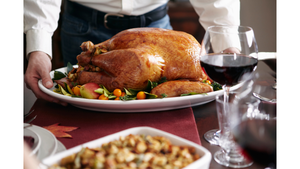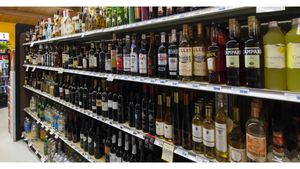WALKING ON EGGSHELLS
After years of leaflets, posters and parking lot protests, animal rights groups gained unusual momentum this year in their fight against retailers which sell eggs produced by caged hens.One of the biggest victories came in October, when a Washington-based group called Compassion Over Killing compelled the United Egg Producers to replace its "Animal Care Certified" label, which was facing an investigation
November 28, 2005
MATTHEW ENIS
After years of leaflets, posters and parking lot protests, animal rights groups gained unusual momentum this year in their fight against retailers which sell eggs produced by caged hens.
One of the biggest victories came in October, when a Washington-based group called Compassion Over Killing compelled the United Egg Producers to replace its "Animal Care Certified" label, which was facing an investigation by federal regulators. Food retailers ranging from Whole Foods to Earth Fare have promised to start selling cage-free eggs exclusively, and were most recently joined by Trader Joe's, which finally caved in after a full-court press that included full-page attack ads in the L.A. Times.
Cage-free and free-range eggs account for only 5% of the 5.5 billion eggs consumed in the United States each year, but the number may steadily increase now that larger operators are switching over from conventional eggs.
Still, many in the industry say there is no harm done in caging hens. Agricultural veterinarians, for example, point to their lower mortality rate due to their lack of exposure to weather, predators and diseases from wild animals. Industry groups such as UEP say eggs produced by caged hens and carried immediately on conveyor are less likely to harbor harmful bacteria on their shells, and point to regular inspections of their members by the U.S. Department of Agriculture.
On the other hand, activists say that restrictive "battery" cages prevent these animals from living natural lives, following instinctive behaviors, such as nesting, dust-bathing, perching and wing flapping.
Retailers, meanwhile, remain targets and are watching these arguments play out in their parking lots.
Loblaws, the giant Canadian chain, last month became the latest major retailer to face a targeted cage-free campaign, and groups in upstate New York have renewed an ongoing protest against the facility that produces Wegmans' private-label eggs.
"Their demand was that we have a 50% allocation of free-run eggs and 50% traditional eggs," said Geoff Wilson, Loblaws vice president of industry and investor relations, describing demands from the Canadian Coalition for Farm Animals. "We already offer a wide selection of organic eggs, which are free-run by definition. Our shelf space is allocated based on demand. Arbitrarily going to 50% would cause huge shrink."
CCFA spokeswoman Debra Probert countered that specialty eggs, such as those with omega-3 claims, can confuse customers into thinking they're buying a free-range product, and that retailers should be more proactive in educating customers on this subject.
Customers, and often shareholders, want to see their supermarket offer a selection of products that people want to buy. But photos handed out by activist groups have the power to shock many average consumers, who likely have little familiarity with modern agriculture. By taking "leadership" positions on these issues, it's becoming clear that some retailers believe "out of sight, out of mind" is a policy that won't work for shoppers.
About the Author
You May Also Like






